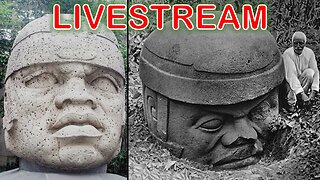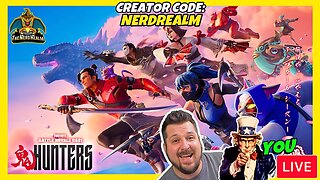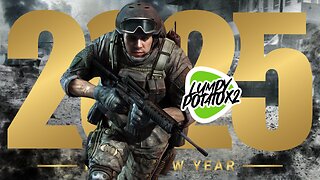Premium Only Content

Genesis 34:1-31: "Dinah's Tragedy and the Vengeance of Simeon and Levi"
Genesis 34:1-31: "Dinah's Tragedy and the Vengeance of Simeon and Levi"
Context:
Genesis 34 recounts a dark and violent episode in the history of Jacob's family. Dinah, the daughter of Jacob and Leah, experiences a grievous violation, which leads to a chain of events involving deceit, violence, and vengeance. The chapter explores themes of honor, justice, and the complex dynamics within Jacob's family.
Verses:
Genesis 34:1-31 (NIV)
Summary and Description:
Dinah's Violation (Verses 1-4):
Dinah's Visit: Dinah, the daughter of Leah and Jacob, goes out to visit the women of the land.
Shechem's Act: Shechem, the son of Hamor the Hivite, the prince of the land, sees Dinah, seizes her, and rapes her. Despite his act, he is deeply attracted to Dinah and desires to marry her.
Shechem's Request: Shechem speaks to his father Hamor, expressing his desire to marry Dinah and asking for her as his wife.
Jacob and His Sons' Response (Verses 5-7):
Jacob's Reaction: Jacob hears about Dinah’s defilement but remains silent until his sons return from the fields.
Sons' Indignation: Jacob's sons, upon learning of the incident, are filled with grief and fury because Shechem had committed an outrageous act against their sister, which they consider a disgraceful thing in Israel.
Negotiations with Hamor and Shechem (Verses 8-12):
Hamor's Proposal: Hamor approaches Jacob and his sons, proposing that Shechem marry Dinah. He suggests intermarriage between their peoples and offers to make settlements and trades.
Shechem's Plea: Shechem, desperate to marry Dinah, offers to give any bride price and gift as demanded by Jacob's family.
Deceptive Agreement (Verses 13-24):
Sons' Deceit: Jacob's sons, particularly Simeon and Levi, deceitfully agree to the marriage on the condition that all the males in Shechem's city be circumcised, arguing that they cannot give their sister to someone who is uncircumcised.
Hamor and Shechem's Convincing: Hamor and Shechem convince the men of their city to agree to the circumcision, promising benefits and mutual prosperity through intermarriage with Jacob's family.
Circumcision of the Men: All the men of the city agree and are circumcised.
Massacre and Retribution (Verses 25-29):
Simeon and Levi's Attack: On the third day, when the men of the city are still in pain from the circumcision, Simeon and Levi, Dinah's full brothers, take their swords and attack the unsuspecting city, killing all the males, including Hamor and Shechem.
Rescue and Plunder: They retrieve Dinah from Shechem’s house and loot the city, taking flocks, herds, wealth, women, and children.
Jacob's Reproach (Verses 30-31):
Jacob's Concern: Jacob reprimands Simeon and Levi, expressing fear that their actions will bring trouble from the neighboring Canaanites and Perizzites, potentially leading to their family's destruction due to being outnumbered.
Sons' Justification: Simeon and Levi defend their actions, insisting that their sister should not be treated like a prostitute.
Analysis:
Themes of Honor and Justice:
Family Honor: The outrage and actions of Dinah's brothers stem from a deeply rooted sense of family honor. They view Shechem's act as a profound dishonor to their sister and family.
Retributive Justice: Simeon and Levi's response, though brutal and extreme, reflects their perception of justice—avenging their sister's violation by eliminating the entire male population of Shechem's city.
Deceit and Consequences:
Deceptive Agreement: The sons' deceit in using the covenant of circumcision to weaken and ultimately destroy their enemies highlights the complexity of their moral compass. They manipulate a sacred practice for the purpose of vengeance.
Consequences for Jacob: Jacob's fear of reprisal from surrounding tribes underscores the precarious position of his family in a foreign land. The actions of Simeon and Levi place the entire household at risk.
Cultural and Ethical Context:
Patriarchal Society: The narrative reflects the values and norms of a patriarchal society where the honor of women is directly tied to the family and male relatives feel obligated to defend it.
Ethical Dilemmas: The chapter presents ethical dilemmas around justice and vengeance, challenging readers to reflect on the appropriateness and impact of violent retribution.
Inter-family Dynamics:
Jacob and His Sons: The incident reveals the tensions between Jacob and his sons. Jacob’s reproach indicates a clash between his concern for survival and his sons' desire for retributive justice.
Simeon and Levi: The actions of Simeon and Levi demonstrate their fierce loyalty to family but also their propensity for violence, foreshadowing future conflicts within the tribes of Israel.
Broader Significance:
Moral Complexity: Genesis 34 is a complex chapter that invites reflection on the nature of justice, the ethics of deceit and violence, and the challenges of maintaining
-
 1:00:37
1:00:37
Bright Insight
10 days agoOlmec Heads are Evidence of Lost Ancient Advanced Civilization
121K227 -
 13:43
13:43
Cooking with Gruel
2 days agoCreamy Saffron Risotto
97.2K20 -
 18:38
18:38
DeVory Darkins
1 day ago $23.40 earnedTrump Makes HUGE Announcement that may spark GOP Battle
67.5K76 -
 2:13:05
2:13:05
The Nerd Realm
12 hours ago $5.17 earnedNew Years Eve! Fortnite Hunters w/ YOU! Creator Code: NERDREALM
58.3K4 -
 11:04:44
11:04:44
FusedAegisTV
1 day agoNYE Eve! - 2025 Incoming 🎉 - 12hr Variety Stream!
124K6 -
 1:18:52
1:18:52
Awaken With JP
15 hours agoSomehow The World DIDN’T End This Year! - LIES Ep 72
160K82 -
 1:19:34
1:19:34
Michael Franzese
13 hours agoWhat 2024 Taught Us About the Future?
129K32 -
 1:48:09
1:48:09
The Quartering
13 hours agoBird Flu PANIC, Sam Hyde DESTROYS Elon Musk & Patrick Bet David & Woke Witcher?
135K77 -
 4:47
4:47
SLS - Street League Skateboarding
3 days agoLiz Akama’s 2nd Place Finish at SLS Tokyo 2024 | Best Tricks
59K5 -
 4:06:54
4:06:54
LumpyPotatoX2
12 hours agoHappy New Year Rumble ! - #RumbleGaming
42.6K